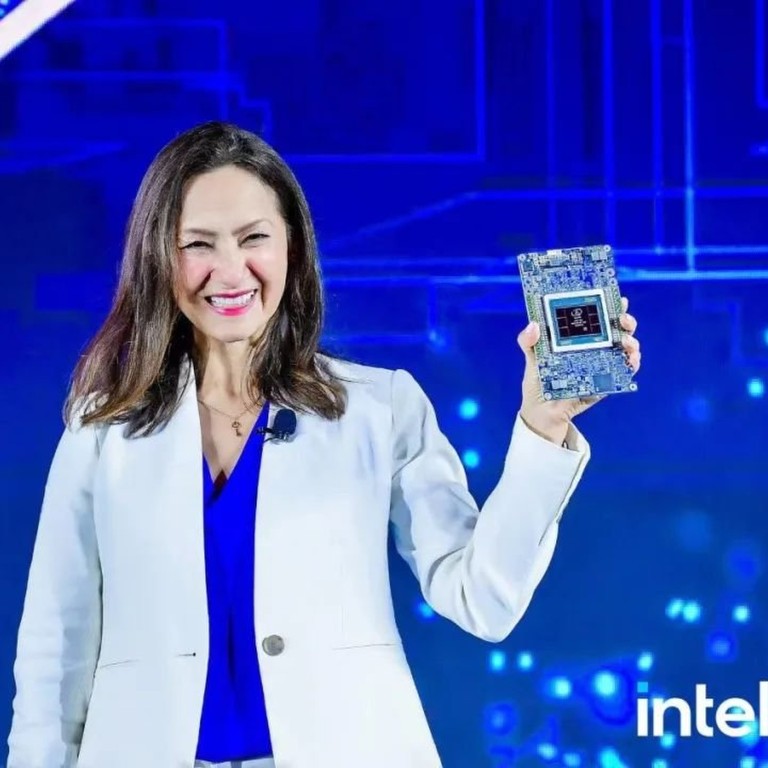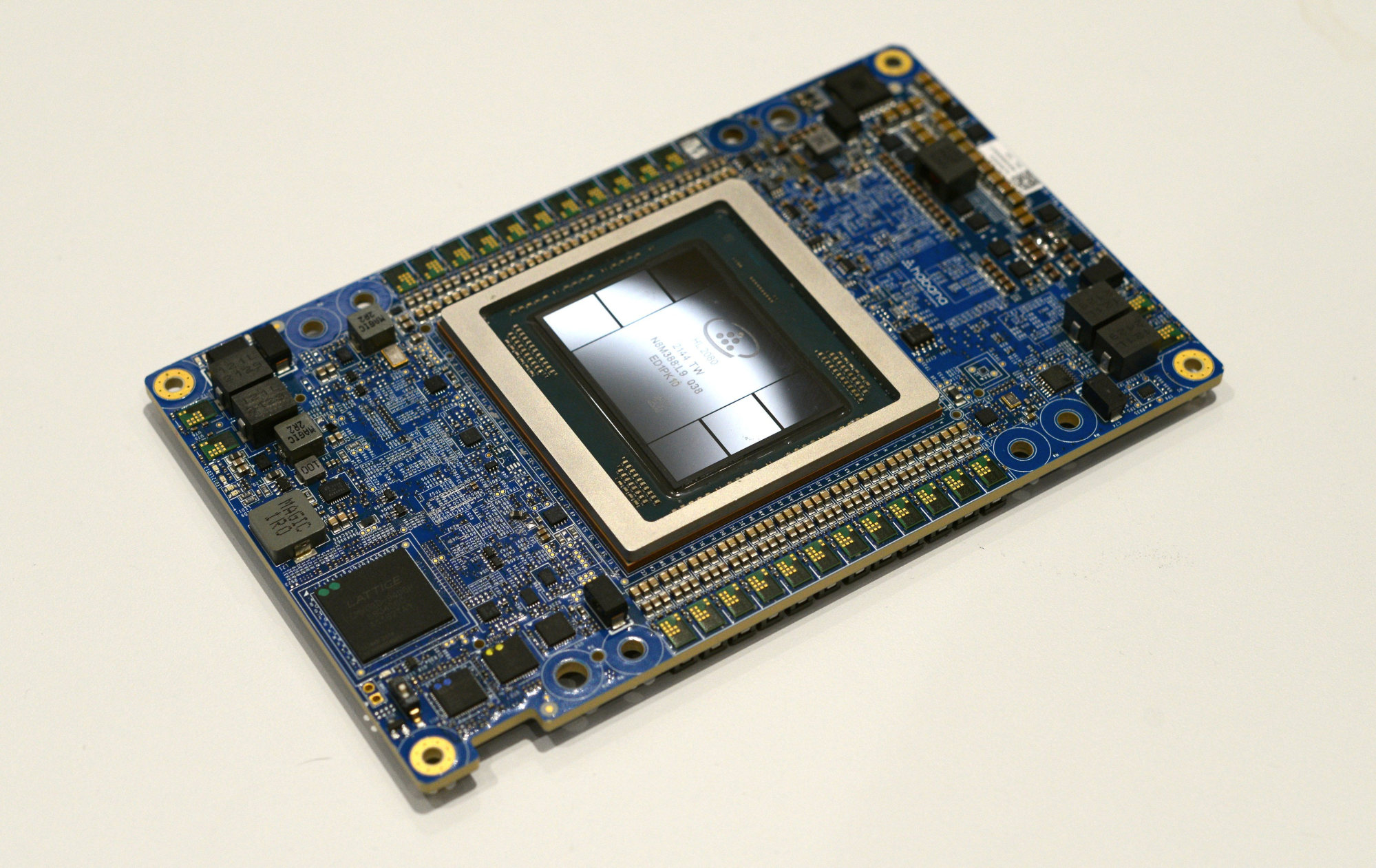
Tech war: Intel and Nvidia continue to push purpose-built chips for training AI systems in China amid US export restrictions
- Intel said its Gaudi2 processor, which is not subject to US restrictions, is the company’s answer to Nvidia’s A100 GPU, used for training AI systems
- It follows efforts by Nvidia earlier this year to push modified versions of the firm’s US-restricted A100 and H100 GPUs in China
At a press conference in Beijing on Tuesday, Intel executives presented the company’s Gaudi2 processor, a device that is not subject to US export restrictions, as its answer to Nvidia’s premium A100 GPU, which is widely used for training AI systems.
The latest initiative by Intel – which generated 27 per cent of its total 2022 revenue in China, according to its latest annual report – underscores the continued importance of the vast mainland market to US semiconductor technology providers, despite Washington’s export controls.

The A100 Tensor Core GPU, according to the Nvidia website, powers the world’s leading data centres used for AI, data analytics and high-performance computing applications.

For Intel, the demand in China strengthens its commitment to provide clients “with a wide range of hardware selections”, company executive vice-president Sandra Rivera, who also serves as general manager of the firm’s data centre and AI group, said at the press conference in Beijing.
She said the Gaudi2 was designed to lower the barrier to entry and enhance its mainland clients’ ability “to deploy AI through cloud and smart-edge technologies, helping build up China’s AI future”.
Habana Labs, Intel’s data centre team focused on AI deep learning processor technologies, initially launched Gaudi2 last May in the US, where it said the processor’s training throughput performance was twice that achieved by Nvidia’s 80-gigabyte A100 GPU for the ResNet-50 computer vision model and the BERT natural language processing model.
Chinese firm UCloud raises market uncertainty in securing advanced Nvidia chips
Intel’s latest offering comes at a time when more difficulties potentially loom for China’s AI ambitions.
The US was said to be also considering an escalated move to include Nvidia’s remodelled A800 GPU in its export ban, according to a report by The Wall Street Journal last month.

